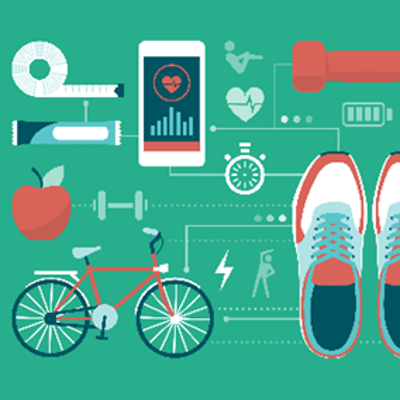Many people’s health and fitness regimes were disrupted during the pandemic. The Brief asks how lawyers have managed to keep in shape and finds out about the importance of good nutrition as we return to more normal ways of working.
Fit and proper
One of the ironies of the lockdowns implemented to maintain public health has been that many people’s fitness routines have been thrown into disarray. The closure of gyms for long periods, and ongoing restrictions relating to group activities, have forced many individuals to find new ways of staying in shape that fit around their patterns of work and home life.
Elizabeth Ward, founder and principal of the intellectual property specialist Virtuoso Legal, was a regular gym goer before the pandemic struck. The firm also negotiates preferential deals at local gyms for its staff.
“Although I now run my own practice the only proper exercise is the gym and I try and go at least twice a week for an hour each time,” Ward tells The Brief.
During the first lockdown, when gyms were closed and we were all adapting to the restrictions placed on our lives, she admits that she didn’t keep in shape, and although she took some online yoga and exercise classes, “My motivation just took a tumble – I wanted to hide under a rock”.
She returned to the gym as soon as it reopened and says she has now regained her previous level of fitness. “I am keen to keep training, not least because it is the greatest stress-buster ever,” she says.
New habits
One positive to come out of the closure of gyms and leisure facilities was that it forced people to discover new ways to exercise. This has ranged from discovering a joy in walking in the great outdoors to practising callisthenics – a form of training that uses the participant’s body weight and involves minimal equipment.
Ward says she discovered wild swimming last year, and that she intends to do more of it. “It is truly amazing and exhilarating,” she says.
On the treadmill
Others, meanwhile, have found ways to keep active while working. For example, the subject of this month’s “A Day in the Life” feature, Emma Thayre of Benefex, has a mini cycle under her desk.
Similarly, a number of people, including two board members, at Kingsley Napley have put that firm’s £200 annual wellness equipment benefit towards the £299 cost of under-desk treadmills that they use in conjunction with standing desks to stay active by walking while working from home.
Leor Franks, business development and marketing director at the firm, started the trend. “I have been standing at work for a couple of years now, to help my back, and bought a treadmill to improve my fitness when I joined Kingsley Napley six months ago,” he says.
“I walk a few thousand steps every day. It works well for Zoom meetings and emails but less well for writing long documents.”
Food for thought
Diet is another area that has taken a hit during the pandemic, with many of us indulging in comfort eating to combat stress or boredom.
According to nutrition consultant Jenna Hope, eating well is not only important for physical health but also for cognitive function and productivity. Whether you plan to remain working from home, return to the office, or a take a hybrid approach, she has provided the following five tips for readers of The Brief.
Set a lunch break. Mindful eating is essential for supporting optimal digestion. When the brain is disengaged from the food you are consuming your digestion can become impaired as the brain fails to communicate to the stomach effectively to secrete digestive enzymes. Therefore, not only can it take longer for appetite-related hormones to kick in, meaning it takes longer to realise you’re full, there’s also an increased risk of partially digested food hitting the gut and creating gastrointestinal discomfort. Eating away from your desk and your emails, whether you’re at home or in the office, is essential for your wellbeing.
Avoid high sugar snacks. High-sugar snacks stimulate a blood sugar rollercoaster which generates sugar spikes and crashes. When blood sugar levels are low you are likely to crave more sugar, feel lethargic, tired and experience impaired cognitive function and performance. Instead, opt for protein-rich snacks such as a handful of nuts, boiled eggs or hummus and carrots. Being prepared in the office with these snacks is key to preventing reaching for the biscuit tin!
Keep water on your desk. Staying hydrated is a really simple to support your wellbeing. Just 1-2% dehydration can impair concentration. You are also more likely to crave high-sugar food for an energy boost. Opt for 2L of water per day.
Limit the coffee stops. When you’re working in the office it can be tempting to reach for a few too many coffees just to get a break. Caffeine can impair sleep when it is consumed later on in the afternoon because it has a half-life of six hours. This means if you consume a coffee at 4pm then by 10pm half of the caffeine is still swimming around in your blood, and can impair production of the sleep hormone melatonin.
Load up on the vegetables. If you are buying lunch out ensure you’re opting for choices that are rich in vegetables (ideally half of your lunch should consist of veggies). Vegetables are rich in micronutrients and fibre. Fibre contributes to supporting a healthy gut which is essential in maintaining energy and mental wellbeing.
Above all, Hope says, plan ahead and avoid skipping meals. “When you skip meals you’re likely to experience low blood sugar levels which can cause cravings for high-sugar foods and can impair your concentration,” she concludes.
